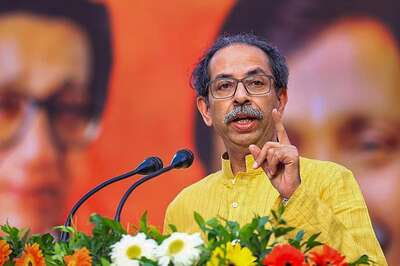
views
The debate on work-life balance has been reignited by Bhavish Aggarwal, the CEO of Ola, who has supported Infosys Founder Narayana Murthy’s earlier advice advocating for a 70-hour workweek.
In October 2023, Murthy had said that for India to compete with the economies that have made tremendous progress in the past two to three decades, youngsters must work 70 hours a week. While it received a mixed response from the corporate and startup world, Aggarwal had then also supported Murthy’s statement.
Once again, in his latest podcast appearance, he spoke against the concept of work-life balance and said: “I don’t agree with the work-life balance concept because if you are enjoying your work, you will find happiness in life also and work also, and both of them will be in harmony.”
While these arguments continue, what does the scientific advice say? Are our bodies and minds capable of handling a 70-hour workweek?
According to medical professionals, it is possible but not desirable. In fact, doctors emphasised that life should encompass more than just work and they criticised the notion of a 70-hour workweek as exploitative and solely profit-driven, questioning whether advocates can guarantee employment and good health for everyone.
Shows Toxic Work Culture With No Family Time: Doctors
Healthcare experts have insisted that there is a fair amount of scientific evidence to suggest that a 70-hour work week as compared to a 40-hour work week, leads to an increased incidence of cardiovascular diseases, like strokes, heart attacks and high blood pressure.
Researchers have shown that working 55 or more hours per week is associated with a 35 per cent higher risk of a stroke and a 17 per cent higher risk of dying from ischemic heart disease, compared to working 35-40 hours a week.
Hyderabad-based Neurologist from Apollo Hospitals tweeted the findings of studies on his X account. His post said, “More than 800,000 people die every year due to working for more than 55 hours a week.”
“Long working hours are associated with a higher risk of being overweight and having prediabetes and type 2 diabetes. People working 69 or more hours a week are more likely to have moderate to severe depressive symptoms than those working 40 hours a week.”
“CEOs are inclined to recommend long working hours for their employees to improve their company’s profits and their own net worth. If employees fall sick, they can be easily substituted,” Kumar wrote.
Similarly, Dr Sumit Ray, medical director at Holy Family Hospital, New Delhi, asserted that the purpose of life extends beyond work. He criticised the mindset behind a 70-hour workweek, labelling it as exploitative and profit-driven.
“The purpose of living is not just to work, but, to have leisure, and have pleasurable human interactions with friends, family, and acquaintances. Have time for greater intellectual stimulation and healthy physical activity.”
Ray said that multiple series of interviews of the elderly have always brought out the fact that they regret having worked too hard (even without a 70-hour work week!).
“They have regrets about not having spent enough time with friends and family, not enough time to travel and doing things that they loved doing. A 40-hour work week was fought for by the working people of the world more than 150 years ago, for better lives as human beings, not to live just as workers to produce.”
“The mindset of a 70-hour workweek comes from a completely exploitative worldview, where profit is the only driving motive. Can these proposers of a 70-hour work week guarantee employment and good health for all,” Ray questioned.
Supporting this viewpoint, Dr Yatin Mehta, chairman, critical care, at Gurugram-based super speciality hospital Medanta, said, “While working 70 hours a week is possible, it is not desirable. It leaves no time for family or personal life, negatively impacting both physical and mental health.”
Infact, Dr Rajeev Jayadevan, a senior consultant gastroenterologist and former President of the Indian Medical Association, Cochin, argued that working 70 hours a week isn’t necessary for achieving optimal results.
He believes that efficiency and an optimised work setting are more important. He pointed out that unorganised workers may take much longer to complete tasks, whereas productive individuals use their time wisely. Jayadevan highlighted that the UK law limits work to 48 hours a week, with exceptions for certain professions. Hence, he believes, extending work hours for everyone isn’t a solution for anything.
Working 70-hour weeks is a personal choice. Some people are workaholics and can manage this schedule well. For them, the intensity fuels their productivity and satisfaction. Everyone has different thresholds for stress and work-life balance. While some thrive under demanding schedules, others may find it detrimental to their health and personal relationships. Ultimately, the key is to understand one’s own limits.




















Comments
0 comment